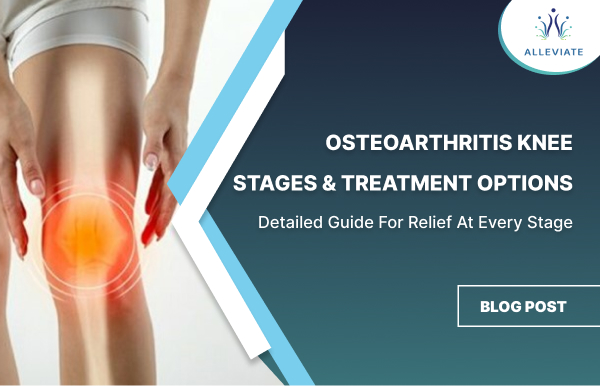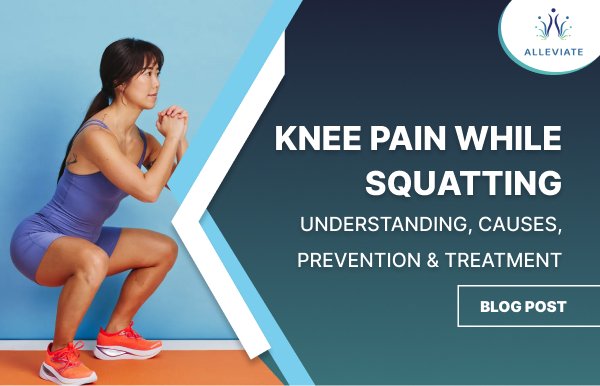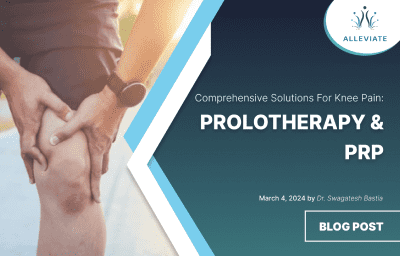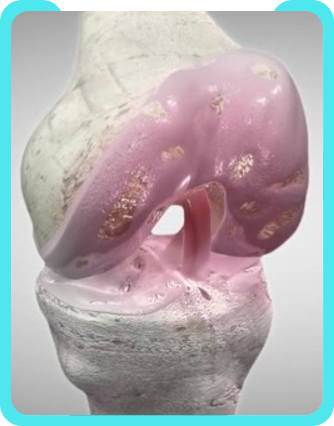
Knee Osteoarthritis Treatment & Doctors in Bangalore
What is Knee Osteoarthritis?
Knee osteoarthritis is a common degenerative joint disease that affects millions of people worldwide. It involves the gradual breakdown of cartilage in the knee joint, leading to pain, stiffness, and decreased mobility. This condition can significantly impact daily activities and quality of life.
Treatment for Knee Osteoarthritis
Normal Knee

Osteoarthritis Knee
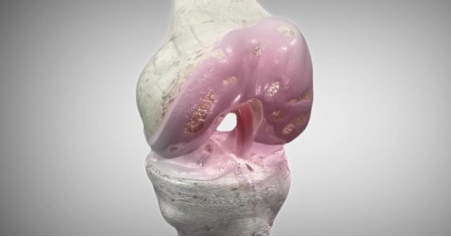
Stages of Osteoarthritis Knee
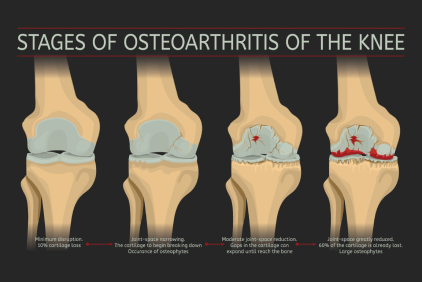
Anatomy of Knee Osteoarthritis
In knee osteoarthritis, the cartilage that cushions the ends of the femur (thigh bone) and tibia (shin bone) begins to deteriorate. This degeneration leads to the bones rubbing against each other, causing pain, swelling, and reduced mobility. The joint’s synovial membrane, which produces fluid to lubricate the joint, can become inflamed, further contributing to discomfort and stiffness.
Symptoms of Knee Osteoarthritis
The symptoms of knee osteoarthritis can vary in severity and often develop gradually. Common symptoms include:
Pain: Aching or sharp pain in the knee, especially during or after movement.
Stiffness: Reduced flexibility, particularly in the morning or after periods of inactivity.
Swelling: Inflammation around the knee joint.
Decreased Range of Motion: Difficulty bending or straightening the knee.
Grinding Sensation: A feeling of bones rubbing together, known as crepitus.
Weakness: Muscle weakness around the knee, leading to instability.
Causes of Knee Osteoarthritis
Knee osteoarthritis is primarily caused by the wear and tear of cartilage. Several factors can contribute to this degenerative process:
Age: The risk increases with age as cartilage becomes less resilient.
Genetics: A family history of osteoarthritis can predispose individuals to the condition.
Injury: Previous knee injuries, such as fractures or ligament tears, can accelerate cartilage breakdown.
Obesity: Excess weight puts additional stress on the knee joints.
Repetitive Stress: Jobs or activities that involve repetitive knee movements can lead to overuse injuries.
Gender: Women are more likely to develop osteoarthritis, especially after menopause.
Risk Factors
Several risk factors can increase the likelihood of developing knee osteoarthritis, including:
Age: The incidence of osteoarthritis increases with age.
Gender: Women, particularly those over 50, are more prone to knee osteoarthritis.
Obesity: Extra weight adds stress to the knee joints.
Joint Injuries: Past injuries can predispose the knee to osteoarthritis.
Occupational Stress: Jobs that require frequent kneeling, squatting, or heavy lifting.
Genetics: A family history of osteoarthritis can increase risk.
Preventing Knee Osteoarthritis
While some risk factors cannot be controlled, several strategies can help prevent or delay the onset of knee osteoarthritis:
- Maintain a Healthy Weight: Reducing stress on the knee joints by keeping a healthy body weight.
- Regular Exercise: Strengthening the muscles around the knee and improving joint stability.
- Protect Your Joints: Using proper techniques during activities and sports to avoid injury.
- Healthy Diet: Consuming a balanced diet rich in anti-inflammatory foods and nutrients that support joint health.
- Avoid Overuse: Take breaks with different activities to avoid repetitive stress on the knee.
Treatment Options for Knee Osteoarthritis
Physical Therapy (Quadriceps Strengthening): Strengthening the quadriceps muscles through physical therapy can enhance knee stability and function, reducing pain and improving mobility.
Weight Management: Maintaining a healthy weight reduces stress on the knees, which helps alleviate pain and slows the progression of knee arthritis.
Low-Impact Exercise: Activities like cycling, and swimming minimise joint stress while improving cardiovascular fitness and knee function.
Nonsteroidal Anti-Inflammatory Drugs (NSAIDs): NSAIDs reduce inflammation and provide short-term pain relief. Long-term use requires monitoring due to potential side effects.
Corticosteroid Injections: These injections offer short-term pain relief by reducing inflammation, effective for up to 12 weeks. However, repeated use can damage cartilage.
Hyaluronic Acid Injections: These injections lubricate the knee joint, reducing pain and improving function, especially for those who do not respond to other treatments.
Platelet-Rich Plasma (PRP) Therapy: PRP uses the patient’s own blood to promote tissue repair and reduce inflammation, improving pain and knee function.
Prolotherapy: This regenerative injection therapy stimulates tissue repair with natural irritants. Early studies show promise, but more research is needed.
Stem Cell Therapy: It is an innovative treatment for knee osteoarthritis (OA). This therapy aims to regenerate damaged cartilage and reduce inflammation.
Assistive Devices: Braces and knee sleeves provide support and stability, reducing pain and preventing further damage to the knee.
Transcutaneous Electrical Nerve Stimulation (TENS): TENS uses electrical currents to disrupt pain signals, offering short-term pain relief and improved physical function
Effectiveness of PRP (Platelet-Rich Plasma) therapy for knee cartilage restoration:
Improved Pain Relief: Studies show significant, long-lasting reductions in knee pain following PRP treatment.
Enhanced Functionality: Patients experience better knee joint function and increased mobility, allowing them to return to previously avoided activities.
Cartilage Repair: MRI scans and arthroscopic evaluations indicate cartilage repair and regeneration in patients treated with PRP.
Delay in Surgical Interventions: PRP therapy can delay or eliminate the need for invasive surgeries, such as knee replacements.
Safety: PRP is considered safe with minimal risk of adverse reactions, as it uses the patient’s own blood components.
Effectiveness of Stem Cell Therapy to regenerate damaged cartilage
Pain Reduction: Studies show significant pain relief due to the regenerative effects on cartilage and anti-inflammatory properties of MSCs.
Functional Improvement: Patients report better knee function, increased mobility, and reduced stiffness.
Cartilage Regeneration: Imaging studies (e.g., MRI) show increased cartilage volume and thickness.
Disease Modification: Long-term studies suggest a slower progression of osteoarthritis, indicating a potential disease-modifying effect.
Osteoarthritis Treatment
at Alleviate Pain Clinic
- Purpose: Promote natural healing and reduce pain.
- Procedure: Injection of platelet-rich plasma derived from the patient’s own blood into the affected joint.
- Benefits: Reduced inflammation, stimulated tissue repair, pain relief.
- Ideal For: Early to moderate osteoarthritis.
- Purpose: Regenerate damaged cartilage and alleviate pain.
- Procedure: Injection of stem cells into the affected joint to promote tissue regeneration.
- Benefits: Improved joint function, long-term pain relief, reduced progression of osteoarthritis.
- Ideal For: Early to moderate osteoarthritis.
- Purpose: Reduce pain and muscle spasms in severe osteoarthritis.
- Procedure: Injection of botulinum toxin into the affected joint or surrounding muscles.
- Benefits: Pain relief, reduced muscle spasms, improved mobility.
- Ideal For: Severe osteoarthritis patients not willing or fit for surgery.
Thermal Rhizotomy of the Genicular Nerve
- Purpose: Provide long-term pain relief for severe osteoarthritis.
- Procedure: Using heat to ablate the genicular nerve, disrupting pain signals.
- Benefits: Long-lasting pain relief, minimally invasive, improved joint function.
- Ideal For: Severe osteoarthritis patients not willing or fit for surgery.
Combined Approach
- Early to Moderate Osteoarthritis: Non-surgical options such as PRP and stem cell therapy to promote healing and reduce pain.
- Severe Osteoarthritis: Non-surgical treatments like Treatment injections and thermal rhizotomy for those not willing or fit for surgery.
- Goals: Alleviate pain, improve joint function, enhance quality of life.
At Alleviate Pain Clinic, we specialize in non-surgical treatments for osteoarthritis, offering PRP, stem cell therapy, Treatment injections, and thermal rhizotomy. Contact us to create a personalized approach to manage your osteoarthritis and improve your quality of life.
FAQs - Knee Osteoarthritis
Knee osteoarthritis is a degenerative joint condition where the protective cartilage that cushions the ends of bones in the knee joint wears down over time. This results in pain, stiffness, and reduced mobility in the knee.
Common symptoms include knee pain, stiffness, swelling, reduced range of motion, a grating sensation, and discomfort that worsens with activity and improves with rest.
Diagnosis involves a physical exam, discussing symptoms and medical history, and possibly imaging tests like X-rays to assess the joint’s condition.
Risk factors include age (it’s more common in older adults), family history of osteoarthritis, obesity, previous knee injuries, joint overuse, and gender (more common in women).
Physical therapy includes tailored exercises to strengthen muscles around the knee, improve flexibility, and enhance joint stability. It helps reduce pain, improve function, and enhance overall quality of life.
Regenerative therapies like PRP (Platelet-Rich Plasma) and stem cell therapy promote natural healing processes by delivering growth factors or stem cells to the affected area. They aid tissue repair, reduce inflammation, and potentially slow down disease progression
PRP (Platelet-Rich Plasma) therapy involves drawing a small amount of the patient’s blood, processing it to concentrate platelets, and then injecting the PRP into the knee joint. Platelets release growth factors that promote tissue repair, reduce inflammation, and potentially alleviate knee osteoarthritis symptoms.
Stem cell therapy utilizes the body’s own stem cells or those derived from other sources. These cells have the potential to regenerate damaged tissues, promote healing, and reduce inflammation in knee osteoarthritis. Clinical results vary, but research suggests positive outcomes for pain reduction and functional improvement.
Radiofrequency ablation involves using heat to interrupt pain signals from specific nerves. In knee osteoarthritis, genicular nerves are targeted. The procedure can provide effective pain relief and improved joint function, often as part of a comprehensive pain management plan.
Yes, many cases of knee osteoarthritis can be managed without surgery. Non-surgical approaches include medication, physical therapy, lifestyle modifications, injections (corticosteroids, hyaluronic acid, PRP), and regenerative therapies, depending on the severity of the condition.
Lifestyle changes include maintaining a healthy weight to reduce joint stress, engaging in low-impact exercises, avoiding activities that strain the knees, adopting a balanced diet rich in anti-inflammatory foods, and practicing joint-friendly habits.
Weight management is crucial in knee osteoarthritis as excess weight places added stress on the joints. Maintaining a healthy weight reduces joint strain, decreases pain, and slows down the progression of the condition.
Choosing the right treatment plan involves considering factors like the severity of your condition, lifestyle, preferences, and medical recommendations. Consult with a healthcare professional to create a personalized treatment approach.
Yes, knee osteoarthritis is more common in older adults due to natural wear and tear on the joints over time. However, it can also affect younger individuals, especially those with joint injuries or genetic predisposition.
Yes, home remedies include using hot or cold packs, practicing gentle exercises, maintaining a healthy weight, adopting joint-friendly habits, and trying over-the-counter pain relief methods. Always consult a healthcare professional before trying new remedies.
Untreated knee osteoarthritis can lead to increased pain, reduced joint function, disability, and decreased quality of life. It may also contribute to other joint issues and impact overall mobility.
Gentle and regular exercises focusing on flexibility and strengthening the muscles around the knee can improve joint mobility. Consult a healthcare professional or physical therapist for personalized exercise recommendations.
Yes, genetics can contribute to an increased risk of developing knee osteoarthritis. A family history of the condition may indicate a genetic predisposition, but lifestyle factors also play a significant role.
While high-impact activities may aggravate knee osteoarthritis, low-impact exercises like swimming and cycling can improve joint function and reduce pain. Consult with a healthcare professional to determine the appropriate activity level.
A balanced diet rich in anti-inflammatory foods, omega-3 fatty acids, and antioxidants can help manage knee osteoarthritis. These nutrients support joint health, reduce inflammation, and contribute to overall well-being.
A healthcare professional will assess your condition, considering factors like pain severity, joint damage, response to non-surgical treatments, and overall health. Surgery, such as knee replacement, may be recommended for advanced cases.
Non-surgical treatments offer minimal downtime, reduced risks, and can provide effective pain relief. They include therapies like physical therapy, regenerative treatments, injections, and lifestyle modifications.
Pain medications provide temporary relief, but they don’t address the underlying cause of knee osteoarthritis. Over time, they may have side effects or become less effective. Combining them with other treatments can be more beneficial.
Recovery times vary depending on the treatment type and individual response. Non-surgical treatments may involve minimal downtime, while more invasive procedures like surgery may require weeks to months for full recovery.
During a consultation, a healthcare professional will review your medical history, assess your knee’s condition, discuss symptoms, and recommend diagnostic tests. They will then create a personalized treatment plan tailored to your needs.
No, knee pain can result from various causes, including injuries, strains, and other medical conditions. Accurate diagnosis by a healthcare professional is crucial to determine the underlying cause and appropriate treatment.
Yes, knee osteoarthritis can lead to compensatory changes in how you move, potentially affecting other joints like the hips and lower back. Proper treatment and joint-friendly activities can help prevent such effects.
Physical therapy aims to improve joint function, strengthen muscles, and enhance mobility. Customized exercises and techniques taught by a physical therapist can effectively manage knee osteoarthritis symptoms.
Choose low-impact activities like swimming or walking and avoid excessive stress on the knee joint. Consult a healthcare professional or physical therapist for exercise recommendations tailored to your condition.
Knee joint imaging, such as X-rays or MRI scans, provides detailed views of the joint’s structure and any damage. It helps healthcare professionals accurately diagnose knee osteoarthritis and plan appropriate treatments.
Some natural supplements like glucosamine and chondroitin may offer mild relief from knee osteoarthritis symptoms. However, consult a healthcare professional before using supplements, as their effectiveness varies.
Radiofrequency ablation involves using heat to interrupt pain signals from the genicular nerves around the knee joint. By blocking these signals, it provides effective pain relief for knee osteoarthritis without invasive surgery.
Some individuals report that changes in weather conditions, especially cold and damp environments, can worsen knee osteoarthritis symptoms. However, scientific evidence on this connection is inconclusive.
Yes, knee osteoarthritis can affect your ability to perform certain tasks, especially if your job involves physical activities. Proper management, treatments, and accommodations can help mitigate its impact on work.
Multidisciplinary care involves a team of healthcare professionals collaborating to address various aspects of knee osteoarthritis. This approach provides comprehensive and personalized treatment, resulting in improved outcomes.
Knee osteoarthritis can hinder daily activities like walking, climbing stairs, and bending the knee. As the condition progresses, it may limit mobility and impact overall quality of life.
Inflammation is a key factor in knee osteoarthritis progression. It contributes to joint damage and pain. Managing inflammation through treatments and lifestyle changes can help alleviate symptoms.
Severe knee osteoarthritis can impact joint function, leading to limited mobility and affecting daily activities. However, early diagnosis and appropriate management can prevent or minimize disability.
Knee osteoarthritis typically progresses through four stages: mild, moderate, severe, and end-stage. Each stage represents varying degrees of joint degeneration and symptom severity.
Yes, dietary changes can play a role in managing knee osteoarthritis. Incorporating anti-inflammatory foods, maintaining a healthy weight, and staying hydrated can help alleviate symptoms.
At Alleviate Pain Clinic, we offer customized treatment plans based on individual needs. Our team of specialists assess your condition, medical history, and goals to design a personalized approach for effective knee osteoarthritis management.
Inflammation is a key factor in knee osteoarthritis progression. It contributes to joint damage and pain. Managing inflammation through treatments and lifestyle changes can help alleviate symptoms.
Severe knee osteoarthritis can impact joint function, leading to limited mobility and affecting daily activities. However, early diagnosis and appropriate management can prevent or minimize disability.
Knee osteoarthritis typically progresses through four stages: mild, moderate, severe, and end-stage. Each stage represents varying degrees of joint degeneration and symptom severity.
Yes, dietary changes can play a role in managing knee osteoarthritis. Incorporating anti-inflammatory foods, maintaining a healthy weight, and staying hydrated can help alleviate symptoms.
At Alleviate Pain Clinic, we offer customized treatment plans based on individual needs. Our team of specialists assess your condition, medical history, and goals to design a personalized approach for effective knee osteoarthritis management.
Advanced treatments offer more precise targeting, quicker recovery, reduced risk of complications, and often avoid the need for invasive surgeries. They can address the underlying cause and provide longer-lasting relief.
At Alleviate Pain Clinic, patient comfort is paramount. We use advanced techniques, offer sedation options, and ensure open communication to create a supportive environment during treatments.
Insurance coverage for knee osteoarthritis treatment varies based on individual plans. Alleviate Pain Clinic collaborates with multiple insurance providers to help patients navigate their coverage options.
To prepare for your first appointment, gather your medical history, relevant test reports, and a list of current medications. Be ready to discuss your symptoms, concerns, and treatment goals in detail.
While more common in older adults, knee osteoarthritis can affect young adults due to factors like genetics, injuries, or overuse. Early diagnosis and tailored treatment plans are essential for young patients.
Yes, Alleviate Pain Clinic offers innovative therapies such as regenerative treatments, advanced injections, and cutting-edge techniques that provide effective relief and promote healing.
Alleviate Pain Clinic differentiates itself with its comprehensive approach, specialized team of experts, utilization of the latest technologies, personalized treatment plans, and a commitment to enhancing patients’ quality of life.
Video Spotlight
Blog
Surgery-Free Solutions
Expert Tips for Pain Management
Testimonials
Words From Our Patients
The treatment was very good and the doctor Faraz Ahmed was very kind to the patient and explained clearly the procedure of knee bilateral ha & treatment And we were advised to do physiotherapy. We are very much satisfied. We would recommend this alleviate pain clinic. Thank you
Got treatment of Treatment and HA for right knee arthritis a month ago and finding good relief from pain. Was treated by Dr Swagtesh Bastia who explained very well about the injections and the treatment was painless. The front desk staff were very kind and very helpful and physiotherapy was also done expertly, overall good experience
Alleviate Pain Management clinic has been a godsend for my mom's knee pain. She has been treated by Dr. Wiquar Ahmed. The attentive staff provided personalised care, and after her treatment, she's feeling remarkably better. Thank you for giving my mom the relief she deserves!
The clinic is super clean with a great OT and most importantly all the staff here are very helpful and considerate. My gratitude to Dr Roshan, the nurses, and support staff - they were always available to assist with any issues post procedure and they even made an extra effort to make a home visit for a follow up check-up. This team here is the perfect example of healing and care with a human touch. Thank you!!!!!
My wife had knee pain I have visited alleviate pain and consulted doc santhoshi now she is able to walk pain free and can do her daily activity than before.the physiotherapist here Dr akhila also helped her with few exercises and the staff here Abdul explained all the procedures well . Thank you PPL can visit here for pain relief



